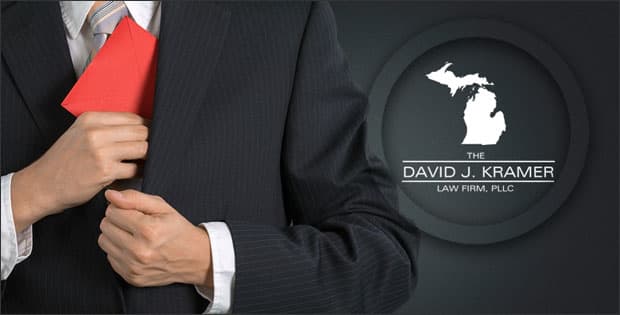Embezzlement in most states is defined as theft of assets – money or property – by a person in a position of trust or responsibility over those assets. It can occur in employment and corporate settings, bank settings, family settings and more.
For instance, a family member may have access to the assets of someone else in his or her family and is trusted to handle that money. If that family member takes some or all of that money, it’s embezzlement.
Professionals may also embezzle from clients or investors in a similar way. Public officials entrusted with government funds using it for personal purchases could be charged with embezzlement.
Another form of embezzlement is accounting embezzlement. This is when an accountant manipulates records to hide his or her theft of funds. Other common forms of embezzlement include fraudulent billing, payroll checks to fabricated employees, records falsification, “Ponzi” financial schemes, and more.
The Konschuh Embezzlement Case
This past April, Lapeer County Judge Byron Konschuh was reinstated to the bench after 20 months of administrative leave. He was placed on leave after being charged in 2014 with five felony counts of embezzlement. That ended in an agreement to dismiss the felony counts if Konschuh entered a no contest plea to the misdemeanor charge.
The case against him focused on funds Konschuh was accused of using from 2009-2013 while serving as Lapeer County prosecutor. And what did prosecutors allege? That Konschuh used funds his office received from a third party which ran a bad-check recovery program, placing them in his personal bank account, to finance purchases such as donuts, staff gifts and drinks at a local bar which were not allowed under state law. Fortunately for him, Konschuh’s lawyers successfully proved he hadn’t known the money wasn’t his to use.
The Four Factors of Embezzlement
For a charge of embezzlement to be supportable in court, four factors must be preset:
- There must be a fiduciary (monetary) relationship between the two parties. One party must be relying on the other
- The defendant must have used the relationship to acquire the property rather than in some other manner
- The defendant must have taken ownership of the property or transferred it to someone else
- It must be proven that the defendant’s actions were intentional
Penalties for Embezzlement in Michigan
In Michigan, this crime is punished by the value or type of property stolen. If you have previous felony convictions there is a possibility of increased penalties.
- Less than $200: Fine of up to $500 or up to three times the value of the property, up to 93 days in jail or both.
- $200-$1000: fine of up to $2000 or three times the amount. Up to 1 year in jail or both.
- $1000-$20,000: fine of up to $10,000 or three times the amount (whichever is greater), up to 5 years in prison or both.
- In all above cases, if embezzlement occurred from a nonprofit or charitable organization, penalties may increase significantly.
- $20,000 or more, but less than $50,000. Penalties include a fine of up to $15,000, or three times the amount embezzled (whichever is greater); up to ten years in prison, or both.
- $50,000 or more, but less than $100,000. Penalties include a fine of up to $25,000, or three times the amount embezzled (whichever is greater); up to 15 years in prison, or both.
- $100,000 or more. Penalties include a fine of up to $50,000, or three times the amount embezzled (whichever is greater); up to 20 years in prison, or both.
Bringing it Home
If you are facing charges of embezzlement – either on its own or as part of a bigger charge – you need an experienced lawyer to review and defend your case. This is an overview of basic penalties if you get a positive conviction. There are many more details of how this crime is penalized that you need to know. Contact my office today.






